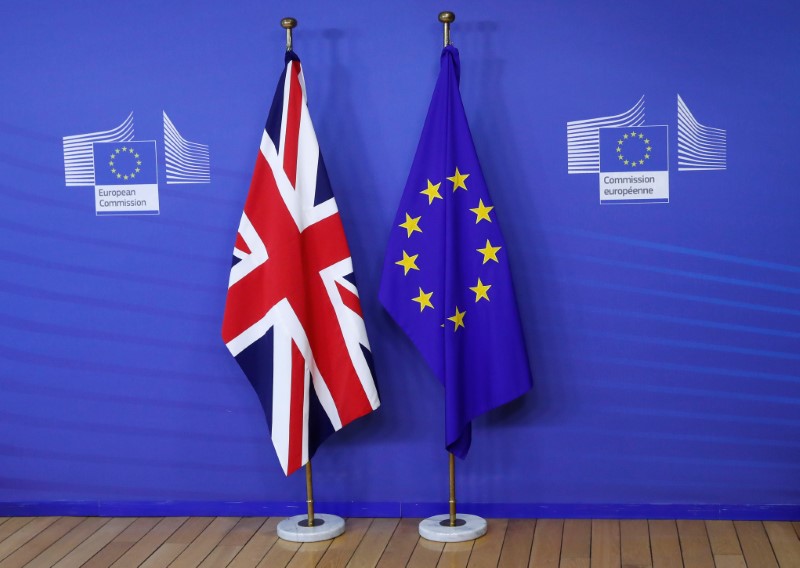By Paul Sandle
LONDON (Reuters) - Britain said on Thursday it wanted to co-operate with the European Union over data protection and have its rules accepted bby the bloc after it leaves.
It proposed using an "adequacy" agreement -- whereby the European Commission recognises the levels of protection provided by non-EU countries -- to ensure the flow of information vital to businesses and the police was not interrupted.
In the latest in a series of papers outlining its aims in Brexit negotiations, the government said Britain had been a major player in setting EU data protection rules, called GDPR, which come into force next year.
"The UK has played an important role in developing the EU's approach to data protection, including by playing a full part in the negotiation of the GDPR," the government said in its paper.
"In light of the UK's unprecedented position, the future deep and special partnership between the UK and the EU could productively build on the existing adequacy model".
The status has been granted to 12 countries, including New Zealand, Switzerland and for certified companies, the United States, but negotiations can be lengthy and the power to revoke any agreement remains with the EU.
The government said that if it cannot agree an adequacy deal, it could fall back on binding corporate rules or standard contractual clauses.
However, it believes that the fact that its data rules will be aligned with the EU gives it a head start.
"We want the secure flow of data to be unhindered in the future as we leave the EU," Minister for Digital Matt Hancock said. "So a strong future data relationship between the UK and EU, based on aligned data protection rules, is in our mutual interest."
He said the goal was to combine strong privacy rules with a relationship that allowed flexibility, to give consumers and businesses certainty in their use of data.
Noting that the digital economy in Britain was worth 118.4 billion pounds ($151.5 billion) in 2015, he said any disruption in the free flow of data could be costly both to Britain and to the remaining members of the bloc.
British lawmakers said last month the country could be put at a competitive disadvantage and the police could lose access to intelligence if the government failed to retain unhindered flows of data.

Britain has published papers this month to try to nudge negotiations with the EU forward, tackling subjects such as laws, customs and the border between Ireland and Northern Ireland.
